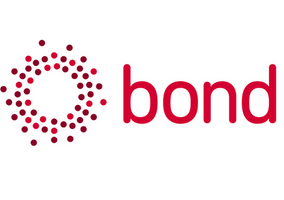More than 40 leaders of British NGOs including Oxfam, Islamic Relief and Christian Aid have signed a letter expressing “global solidarity” to mark one year since the country’s riots.
The letter, signed by members of umbrella body Bond’s CEO Anti-Racism Group, says that UK civil society has “consistently failed to connect the poverty experienced in many parts of the UK with that faced by our international partners”.
It reads: “As leaders, we must recognise our role in either perpetuating or challenging the unequal systems our organisations are part of. Tackling racism means confronting how power operates within our governance structures, funding relationships, and leadership cultures.
“It means confronting how we engage with partners and communities, how we think about expertise, and whose voices count. It means indeed questioning our very existence.”
Lena Bheeroo, head of anti-racism and equity at Bond, said it was positive to see sector leaders sign the statement “at a time when anti-racism is being deprioritised and dismissed” in some workplaces.
“Their shared message of solidarity is a powerful act of resistance and a clear acknowledgement that the work is far from over and there is still a long way to go,” she said.
“Now is not the time to step back. By coming together in this way, they show that a different future is possible, one where anti-racism is sustained not out of pressure, but through care, conviction, and shared responsibility.”
Bond’s letter follows a report published People’s Health Trust last week, which urged mental health support for the staff of local charities managing the aftermath of last summer’s riots.
Commission publishes Middle East guidance
Meanwhile, the Charity Commission recently published a new webpage collating its guidance for charities operating in the Middle East.
In response to this, Muslim Charities Forum chief executive Fadi Itani said: “The guidance marks a proactive step by the commission, showing its dedication to helping charities navigate through complex legal and operational challenges.
“However, the framing must not lead to the discouragement of charities from delivering life-saving aid in some of the most vulnerable communities, creating a chilling effect on charitable activity.”
Rowan Popplewell, policy manager at Bond, said: “Clear and comprehensive guidance from the regulator that signposts charity trustees to the resources and information they need is helpful.
“To improve their ability to operate in the Middle East and other regions affected by conflict, violence and political unrest, and reassure banks and other service providers supporting this work, NGOs need the UK government to urgently introduce a humanitarian exception in all UK autonomous sanctions regimes.”
Popplewell called for similar protections in counter terrorism regulations, urging ministers to discuss how to balance humanitarian aid and security.
Separately, the commission recently said it would contact the attorney general over the legality of charities supporting beneficiaries in the occupied Palestinian territories (OPT) of the West Bank and Gaza.
Related articles












